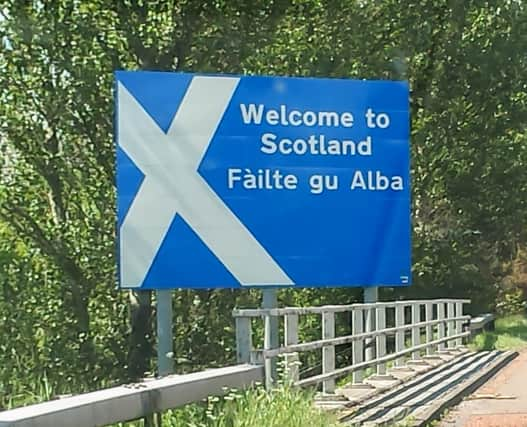Gaelic language will not be saved in Scotland by top-down edicts – Scotsman comment


Launching a new set of proposals designed to address its decline, Education Secretary Shirley-Anne Somerville described Gaelic as a “vital part of Scotland's cultural identity”.
“If Gaelic is to have a sustainable future, there needs to be a concerted effort on the part of government and partners to promote and enable the use of the language,” she added.
Advertisement
Hide AdAdvertisement
Hide AdThe Scottish government’s draft Gaelic Language Plan for 2021-2026 contains a number of ideas, including ambitious proposals to “mainstream” Gaelic among its own staff and the public in the hope that it will be used “more often, by more people and in a wider range of situations”. Any new Scottish government logo will also include a Gaelic version.
However, language is a nebulous thing and is difficult for politicians, or anyone, to control. Some grammarians were horrified when the English word “literally” was redefined to include its antonym when used for emphasis – as in, “I was literally blown away by people's messages of support” – but it happened anyway.
Preserving a language is therefore less about road signs and government logos and more about preserving the wider culture and the communities in which it is spoken on a regular basis. Only a language in habitual use by a large enough group of people and taken up by the younger generation will survive.
Unfortunately, as Murray MacLeòid, the Scotsman’s Gaelic columnist, recently pointed out, the “beating heart of Gaelic in the islands is fading and fast” and attempts to get public bodies to use the language more often “will do little to address that”.
He argued compellingly that there had been few signs of progress following the Gaelic Language Act of 2005, apart from in schools where bilingual education is valued partly because of its wider beneficial effects on academic performance.
There is no doubting the sincerity of the Scottish government’s efforts and its plans to create a recognised Gaelic-speaking area, a Gàidhealtachd, sound promising.
However, ministers need to take care to avoid tokenism and falling into the trap of thinking that language can be imposed from the top down.
A message from the Editor:
Thank you for reading this article. We're more reliant on your support than ever as the shift in consumer habits brought about by coronavirus impacts our advertisers.
If you haven't already, please consider supporting our trusted, fact-checked journalism by taking out a digital subscription.
Comments
Want to join the conversation? Please or to comment on this article.
